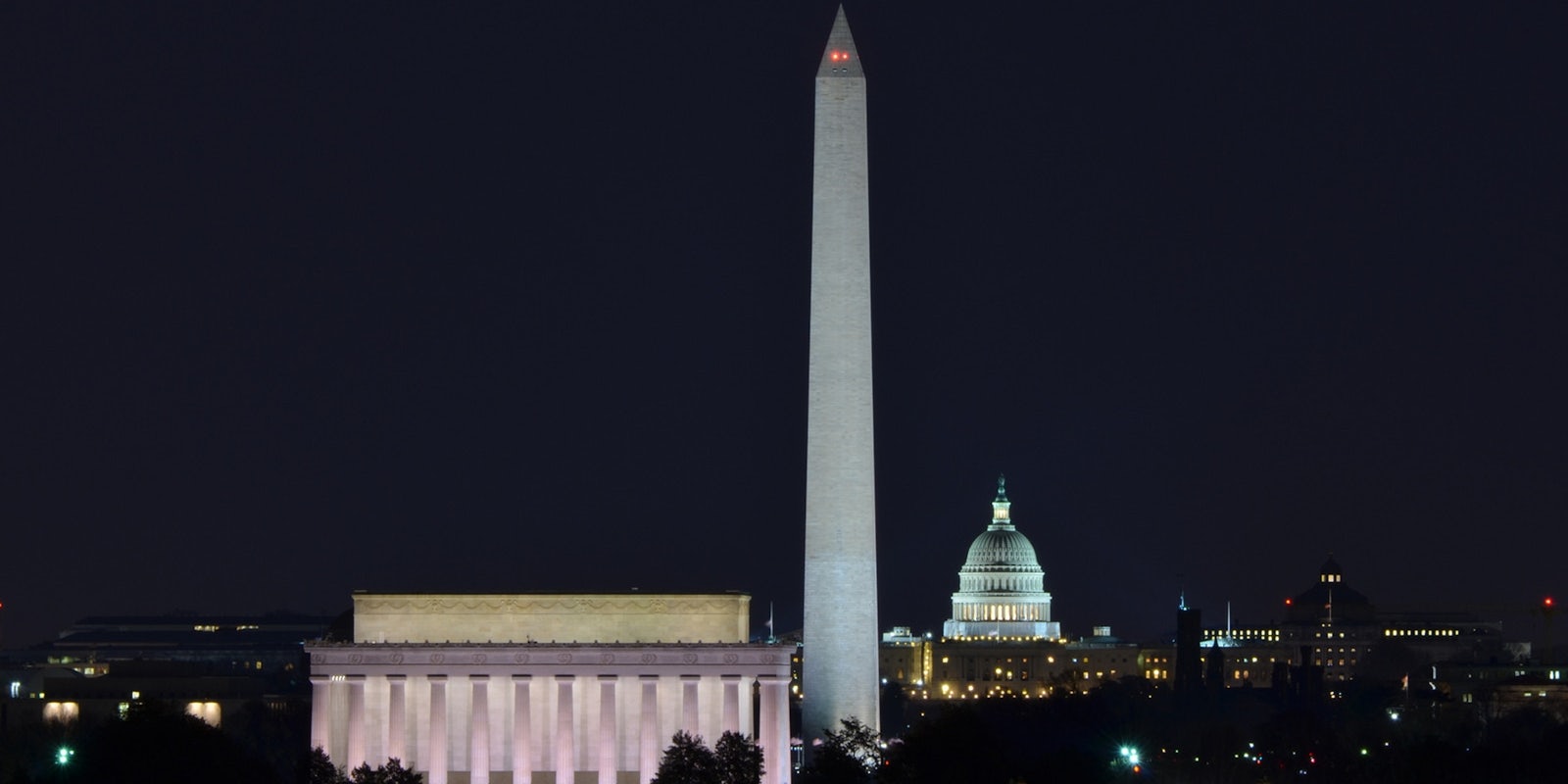It’s very fitting the last day of Keith Alexander’s career as Director of the National Security Agency—a position he used to build the massive data collection programs revealed last year by Edward Snowden—came the Friday before Healthcare.gov suffered crashes and stalls on its most important deadline. Alexander’s exit comes amidst calls from both parties for a complete overhaul of the NSA and its surveillance programs, information about which has caused the number of those who trust in the federal government to plummet to an abysmal 19% (and keep in mind that poll was taken before last October’s government shutdown).
In an astonishing level of tone-deafness, Alexander actually professed a belief that Americans would trust the oversight of The White House and Congress (the latter of whom has an approval rating of just 12%). “We need to recognize that those who are working to protect our nation are not the bad people,” Alexander told the Los Angeles Times last week. “For the first week or so [after the initial Snowden leaks], we all had this idea that we had nothing to be ashamed of, and that everyone who looked at this in context would quickly agree with us.”
For a man who’s recorded the actions of more Americans than any government official before him, Alexander greatly underestimated the public’s trust in any branch of government. Trust in government amongst the American public has seen a steady decline since Watergate—and a steep decline over the past decade, with 60 percent of the country reporting that they trust the government “most of the time” in 2002, compared to just 19 percent in 2012.
The idea of Americans taking the news of the NSA’s mass surveillance with a nod towards government competence isn’t just preposterous in retrospect: it’s been preposterous for over four decades.
A similar stab in the loyalty of Americans to their government comes in the form of Healthcare.gov, an integral part of the Affordable Care Act. After faltering for its first two months, the website managed to sign up 6 million people for health insurance, a full million less than the administration had previously hoped. Republicans quickly attached the website and its somewhat-ongoing problems to their longstanding view of government as incompetent, heartless bureaucrats. Americans bought this image on droves: approval of the ACA has dropped to just 26%, down from its previous high of 57 percent.
While the ACA website and the NSA surveillance programs are quite different functionally, they both represent the double-edged sword that technology has been as a means of governing. While President Obama has made it his personal mission to make Americans trust the government more, the DMV-esque faltering of Healthcare.gov (which admittedly did insure 6 million people who formerly were not) combined with the NSA surveillance has simply created more mistrust.
In fact, they both seem to operate as optimistic at best and blindly indifferent at worst, assuming Americans will run to their government with arms open in a political environment where Republican frontrunners are telling us to do the opposite.
If it is established that Americans do not trust the government (even though the government would prefer to pretend we did), the question is if we even should.
The safeguards Keith Alexander mentions are either ineffective or simply ignored. A report from the Civil Liberties Oversight Board found the NSA program to not just be illegal but also ineffective at fighting terrorism. The FISA court, which reviews all requests for warrants for wiretapping or digital surveillance, has never turned down such a request. Not one. Considering documents leaked by Snowden seem to show agents stalking ex-girlfriends and finding a good excuse to play World of Warcraft at work, it seems at least a few should be subject to questioning.
Meanwhile, the review asked for by the Obama administration found the NSA should stay in place with no changes.
So when Alexander says he expected the protections to bolster the trust of the American people, what does he mean? Who are these oversight agreements meant to protect: our rights or the unhindered ability of the NSA to do as it pleased with legal impunity? When you witness a creature like government that should be a service to you instead servicing itself, how are we supposed to trust anything else it does?
As Alexander leaves his post, these are the questions that will make up his legacy and the legacy of post-9/11 surveillance tactics. Normally, a legacy is made up of facts, failures, and accomplishments. But considering Keith Alexander will just say what we want to hear anyway, the holes of information left by him are not merely redacted statements on paper, but further destruction to the obliterated relationship between Americans and their government.
Photo by dannymac15_1999/Flickr (CC By ND 2.0)
